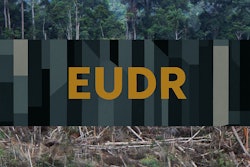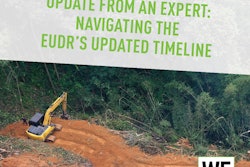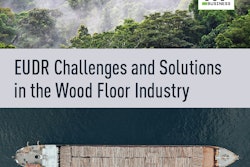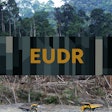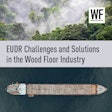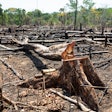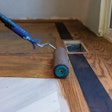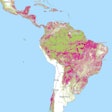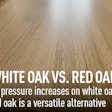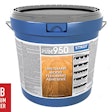“Due Diligence Required” is NOT another post about the Lacey Act. Rather this is a followup post to last week's blog post about the Trans-Pacific Partnership (TPP).
Last week we looked at how the TPP had the potential to push some of the Pacific countries to curb illegal logging and trade in endangered wildlife. However, it is also worth noting this could lead to an increased burden on U.S. exporters to demonstrate legality, as well.
Earlier in the year, there were reports of U.S. hardwood lumber shipments being delayed at the Indonesian border because they are lacking proper paperwork to demonstrate due diligence/legality.
Indonesia has been working very hard for the past decade or so to clean up the country’s image as a leading source of illegally harvested wood. They now have had their SVLK system (discussed in an earlier blog) brought into the FLEGT system (also covered previously.) We celebrated their first FLEGT shipment just a few weeks ago.
SVLK requires due diligence through the entire supply chain, and that includes, logically enough, imports. The importer has to demonstrate due diligence “to ensure the Forest Product legality from the exporting country (country of origin and country of harvest), as well as to prevent illegal forest product importation from happening.”
The government outlines a number of systems that they will recognize as green lanes for imports:
1) FLEGT license from the country where FLEGT license is enforced as implementation from FLEGT-VPA agreement; and/or
2) MRA (Mutual Recognition Agreement) Country License from the country that has work agreement of recognition of legality assurance of the timber and trade with Indonesia; and/or
3) Country Specific Guidelines (CSG) or the like on the legality of forest products, regulated by exporting countries; and or
4) Certificate from a certification agency that applies certification scheme on legality or sustainability of forest products along with the traceability.
5) Reference letter from the authority of the country of harvest or country of origin of forest products on the legality or sustainability of forest products.
Some major supplying countries, like Australia, have already established official clearance for their exports. They worked at the governmental level to ensure Australian woods would be considered safe for import into Indonesia. The U.S. might consider the same.
And what does Indonesia want for due diligence? They specify the following options:
* Risk analysis, namely carrying out cross check on the formal documented information in the country of origin of the forest product and country of harvest, considering potential problems, noting down significant findings, as well as considering information that can show that the Forest Products have been cut/ harvested in an illegal manner, traded in an illegal manner, and/or there has been deception or concealment of information.
* Risk mitigation, namely taking appropriate measures through reliable resources to ensure the reliability and accuracy of information and ensure there shall be neither deception nor concealment of information.
The U.S. hardwood industry has always relied on the Seneca Report as evidence of the low risk. This may eventually be sufficient for the Indonesian importers to use, but it would help, particularly when you consider the topics of recent blogs on U.S. timber theft, if the U.S. industry and the U.S. government would be good to reach out to Indonesia and other countries to show they are aggressively fighting illegal logging at home as well as overseas.
The TPP will lead to new opportunities for U.S. wood exports, but that means that the U.S. government may need to establish a better definition of legality within our own country, not just overseas.















